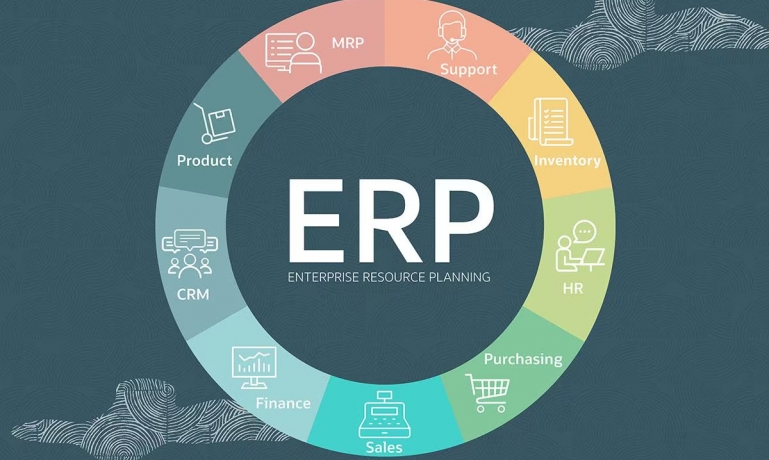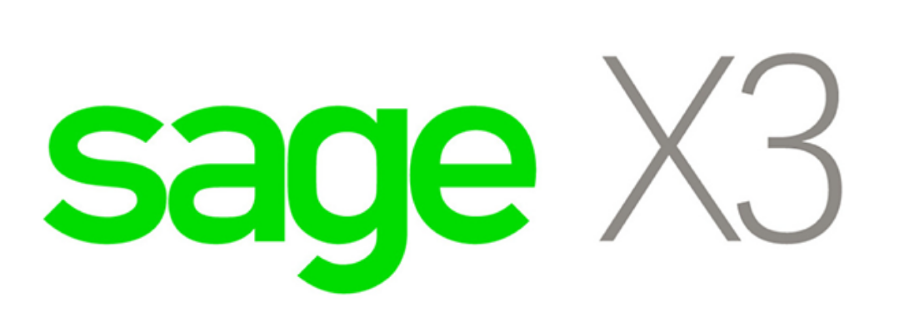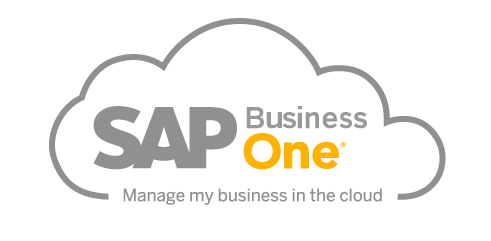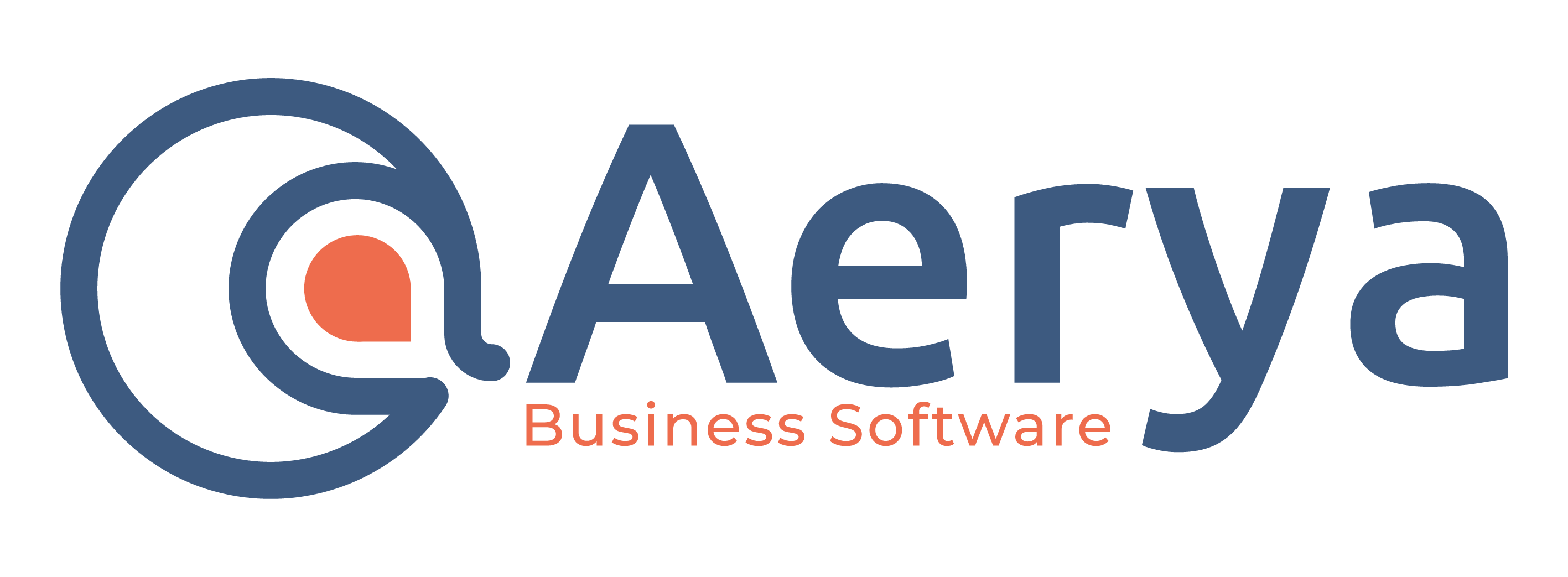What is an ERP?

An ERP is integrated business software designed to manage a firm’s resources, information and processes. It optimizes efficiency, reduces costs and facilitates decision-making by centralizing data and automating workflows between departments such as procurement, manufacturing, sales and human resources.
What does ERP mean?
Enterprise Resource Planning (ERP) is the name of an enterprise resource planning system that integrates a suite of software applications to enable centralized management and integration of an organization’s business processes and operations. Thus, it typically includes modules for managing human resources (HR), inventory, production, procurement and also financial modules such as accounting and budget management.
The main purpose of an ERP system is to help a company optimize its business processes by eliminating data redundancies and automating processes. This can lead to improved efficiency and reduced costs for the organization. By consolidating all business data into one system, an ERP allows companies to make faster decisions and better adapt to market demands.
It is important to note that, thanks to possible customization, an ERP system can be adapted to the specific needs and requirements of a company. This customization can be done both at the enterprise level and for specific business functions.
The history of ERPs
ERP systems appeared in the 1960s, when the first applications for resource planning within companies began to be used.
In the 1970s, the first integrated ERP management software appeared, which included modules for inventory management, production management and procurement management.
In the 1990s, with the development of computer technologies and Internet networks, ERP systems began to spread around the world and be implemented and used by smaller companies as well.
At the same time, software developers began to offer customized and more flexible ERP solutions that could be tailored to the specific needs of companies. Today, ERP systems are widely used in almost all economic sectors, including manufacturing, financial services, healthcare, commerce and government.
Today’s ERP systems are much more advanced and offer more complex functionality and features such as real-time data analysis, business process automation and integration with other software applications such as CRM and SCM. As technology continues to advance, ERP systems are expected to become even more powerful and integrated in the near future.
Why is it important to use an ERP software?
We all know that in the business world, time is money. But how much time do you waste in a year dealing with routine things like data processing, inventory management and order fulfillment? The time wasted on these tasks can be considerable, and they can lead to costly delays and errors.
This is why an ERP management program can be so important to your company. This integrated software solution is designed to manage all aspects of your business, from inventory and production to accounting and sales.
Indeed, an ERP system may seem like an additional cost initially, but if you look at the long-term benefits, you will see that it is a worthwhile investment. An ERP system can help reduce errors and wasted time by automating processes and centralizing all important data in one place. This can lead to increased efficiency and productivity, as well as reduced costs.
In addition to the benefits for your day-to-day operations, an ERP system can also provide a clearer overview of your business. Real-time data and customized reports can help make more informed decisions and identify problems quickly. This can be a powerful weapon in a competitive market where every advantage counts.
The advantages of an ERP management program
Improving operational efficiency
One of the biggest advantages of an ERP is that it helps improve operational efficiency. Integrating all business processes allows the company to operate more efficiently, reducing waiting time and eliminating the risk of human error. It also enables employees to collaborate better across departments and make decisions faster so they can respond more quickly to customer demands.
Cost reduction
ERP can also help reduce costs. Integrating business processes and eliminating unnecessary activities can help reduce production, storage and transportation costs. An ERP can also help identify non-value-added activities and eliminate them, which can lead to significant savings.
Improving the relationship with customers
Another advantage of an ERP is that it can help improve the relationship with customers. Integrating business processes and improving operational efficiency can help reduce delivery time and improve the quality of products and services offered to customers. An ERP can also help collect and analyze customer data, which can lead to improved customer experience and increased customer satisfaction.
Improving flexibility
An ERP can also help improve flexibility. Integrating business processes and eliminating unnecessary activities can help increase company agility and reduce the time needed to make decisions. This can be especially useful in a fast-paced, continuous business environment.
What are the best ERP software?
Odoo ERP

Odoo is an open-source software that can be described as a complete software package for managing the entire business process: sales, accounting, project management and inventory management. In addition, it offers a multitude of modules and custom applications, making it very versatile and easy to use for any type of business.
One of the most interesting aspects of Odoo is that it offers a very intuitive and customizable interface that allows users to configure and adapt the software according to their specific needs. This flexibility makes Odoo very attractive to a variety of industries and companies, from small businesses to multinational corporations.
In addition to its basic features, Odoo also offers a number of advanced modules including e-commerce functions, marketing automation, workflow management and more. With the help of these modules, users can effectively manage business processes and maximize their productivity and profitability.
By using the Odoo ERP system, small and medium-sized enterprises (SMEs) can benefit from relatively low costs compared to other solutions on the market. This gives them a more affordable opportunity to implement an ERP system without having to allocate a significant amount of money. In addition, Odoo comes with a wide range of customizable functionalities and modules, thus allowing the system to be adapted to the specific needs of each business, thus avoiding additional costs for unnecessary functionalities.
Aerya IT Solutions is a company specializing in customized business solutions and software development. We are Odoo partners and we are proud of the fact that we are one of the best Odoo partners in Romania, having the highest success rate in our projects.
As an Odoo partner, we provide end-to-end consulting and implementation, ensuring that the solution perfectly fits your business needs.
Sage ERP

Sage ERP is an integrated management solution that offers a wide range of functions and modules to meet the needs of companies of any size. This solution is designed to help companies easily and efficiently manage all operational aspects, including inventory, finance, sales and supply management.
Sage ERP is a powerful and flexible solution that can be customized according to the specific needs of each company. With a modular system, it can be configured to handle both basic and more complex processes. This gives companies the flexibility to quickly adapt to market changes and grow efficiently.
To ensure optimal performance, Sage ERP is designed to run on a variety of platforms and devices. This includes local or cloud installation options, as well as compatibility with mobile devices. This flexibility gives companies quick access to critical information and data, as well as the ability to collaborate with employees and customers in real time.
In conclusion, Sage ERP is a powerful and flexible solution for managing company operations. With a wide range of features and modules, it can be customized to suit the specific needs of each company. By using Sage ERP, companies can improve efficiency and productivity so they can focus more on business growth and development.
SAP Business One

SAP Business One is a sophisticated ERP software solution developed by SAP AG, a world-renowned German company specializing in technology and business solutions.
This ERP system offers a wide range of functionality and business management tools, including sales, inventory, finance, purchasing and customer relationship management. It is also used by many companies around the world to improve efficiency and productivity, thereby reducing costs while improving the customer experience.
SAP Business One is a highly complex and sophisticated product that relies on a unique combination of business and technology to provide a complete solution for a wide range of business operations. From managing sales and inventory to managing finances and procurement, SAP Business One can easily handle the toughest challenges of modern business.
You should be aware that SAP Business One can be an expensive product, requiring significant investment in licensing and implementation by experienced professionals.

